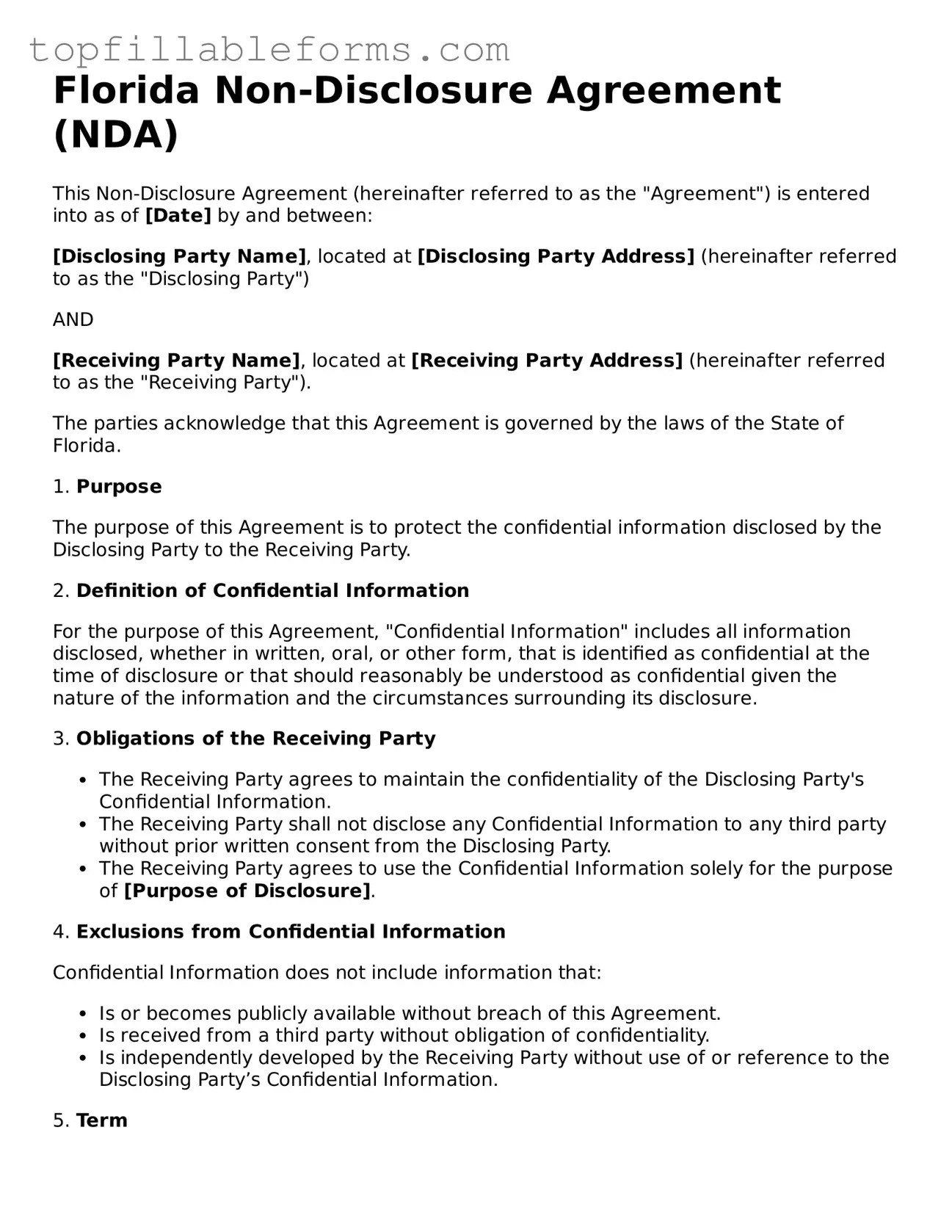Florida Non-Disclosure Agreement (NDA)
This Non-Disclosure Agreement (hereinafter referred to as the "Agreement") is entered into as of [Date] by and between:
[Disclosing Party Name], located at [Disclosing Party Address] (hereinafter referred to as the "Disclosing Party")
AND
[Receiving Party Name], located at [Receiving Party Address] (hereinafter referred to as the "Receiving Party").
The parties acknowledge that this Agreement is governed by the laws of the State of Florida.
1. Purpose
The purpose of this Agreement is to protect the confidential information disclosed by the Disclosing Party to the Receiving Party.
2. Definition of Confidential Information
For the purpose of this Agreement, "Confidential Information" includes all information disclosed, whether in written, oral, or other form, that is identified as confidential at the time of disclosure or that should reasonably be understood as confidential given the nature of the information and the circumstances surrounding its disclosure.
3. Obligations of the Receiving Party
- The Receiving Party agrees to maintain the confidentiality of the Disclosing Party's Confidential Information.
- The Receiving Party shall not disclose any Confidential Information to any third party without prior written consent from the Disclosing Party.
- The Receiving Party agrees to use the Confidential Information solely for the purpose of [Purpose of Disclosure].
4. Exclusions from Confidential Information
Confidential Information does not include information that:
- Is or becomes publicly available without breach of this Agreement.
- Is received from a third party without obligation of confidentiality.
- Is independently developed by the Receiving Party without use of or reference to the Disclosing Party’s Confidential Information.
5. Term
This Agreement shall commence on the date first written above and shall continue for a period of [Number of Years] years, unless extended by mutual written agreement of the parties.
6. Return of Materials
Upon termination of this Agreement, the Receiving Party agrees to return or destroy all materials containing Confidential Information, and certify in writing that all such materials have been returned or destroyed.
7. Miscellaneous
- This Agreement constitutes the entire understanding between the parties regarding the subject matter herein.
- Any amendments to this Agreement must be in writing and signed by both parties.
- If any provision of this Agreement is found to be unenforceable, the remaining provisions shall remain in full force and effect.
IN WITNESS WHEREOF, the parties hereto have executed this Non-Disclosure Agreement as of the date first above written.
Disclosing Party: _________________________
Signature: ________________________________
Date: ___________________________________
Receiving Party: _________________________
Signature: ________________________________
Date: ___________________________________

